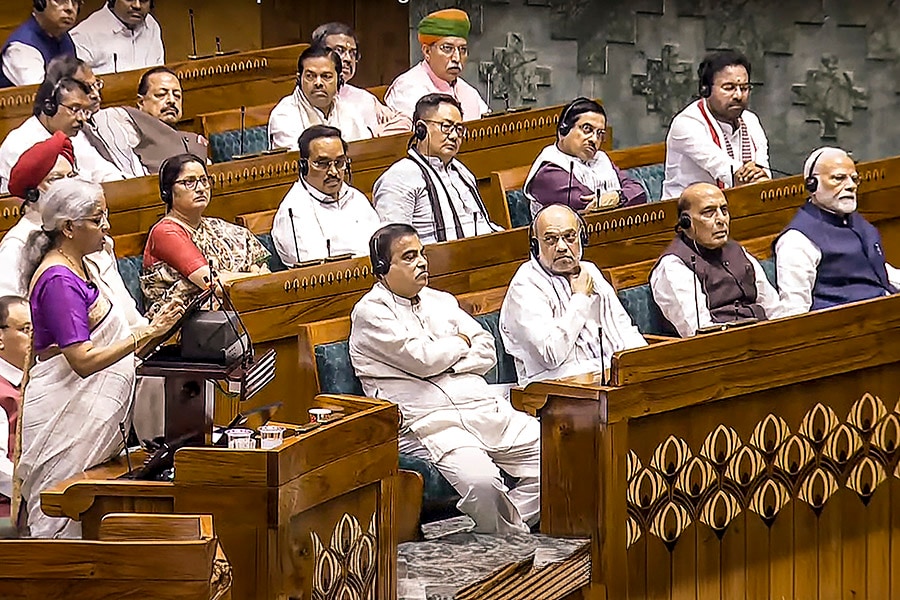Budget 2024: A clear path to fiscal consolidation
The Union Budget signals policy continuity for fiscal prudence even as it aims to uplift diverse sections of the economy for inclusive growth
 Union Finance Minister Nirmala Sitharaman presents the Union Budget 2024-25 in the Lok Sabha in New Delhi on Tuesday, July 23, 2024. Image: PTI Photo
Union Finance Minister Nirmala Sitharaman presents the Union Budget 2024-25 in the Lok Sabha in New Delhi on Tuesday, July 23, 2024. Image: PTI Photo
The Union Budget served a very important purpose. It signalled policy continuity and quelled global speculation that the newly-elected coalition government could influence Narendra Modi to change tracks on reforms and waver from its fiscal agenda to appease political allies.
On the contrary, Finance Minister Nirmala Sitharaman’s record-breaking seventh straight Budget lays bare the Modi 3.0 government’s steadfast focus on job creation and sustainable long-term growth over populist schemes. On the way to achieving its FY26 fiscal deficit goal of 4.5 percent of the GDP, the government did announce sops for women, farmers, and the youth to spur an inclusive and investment-led growth cycle.
What shone through was the solid path to fiscal consolidation: FM Sitharaman lowered the FY25 fiscal deficit estimate to 4.9 percent from 5.1 percent projected in the Interim Budget in February. It aims to bring down the fiscal gap to 4.5 percent in FY26.
Although there was no change in the budget allocation of Rs 11.11 lakh crore towards capex from the interim budget, the focus was clearly on measures to bolster economic growth via a multiplier-effect. The devil is in the fine-print, but prima-facie, the government has not frittered away funds for electoral gains.
Indeed, there is a focus on social packages to help farmers, women, and the youth to accelerate reforms, growth, and energy transition. There are allocations to support small businesses and agriculture to boost rural income for inclusive development.


















